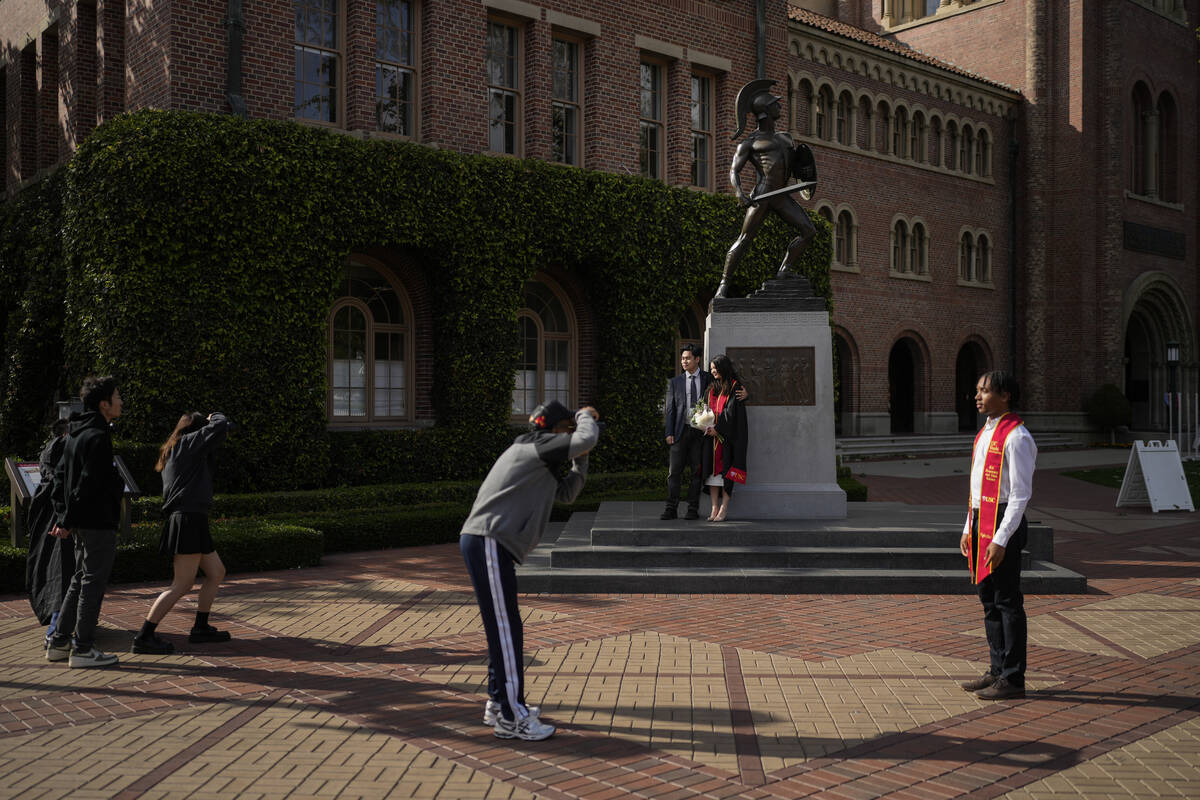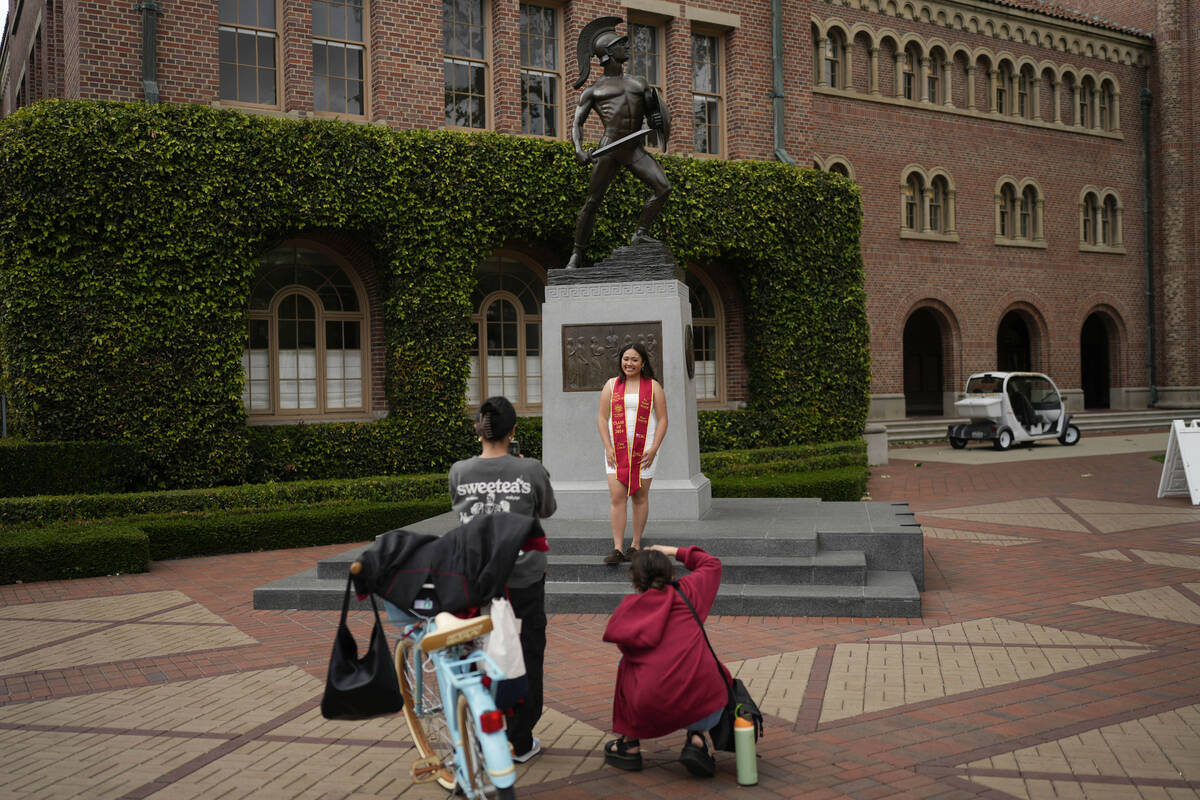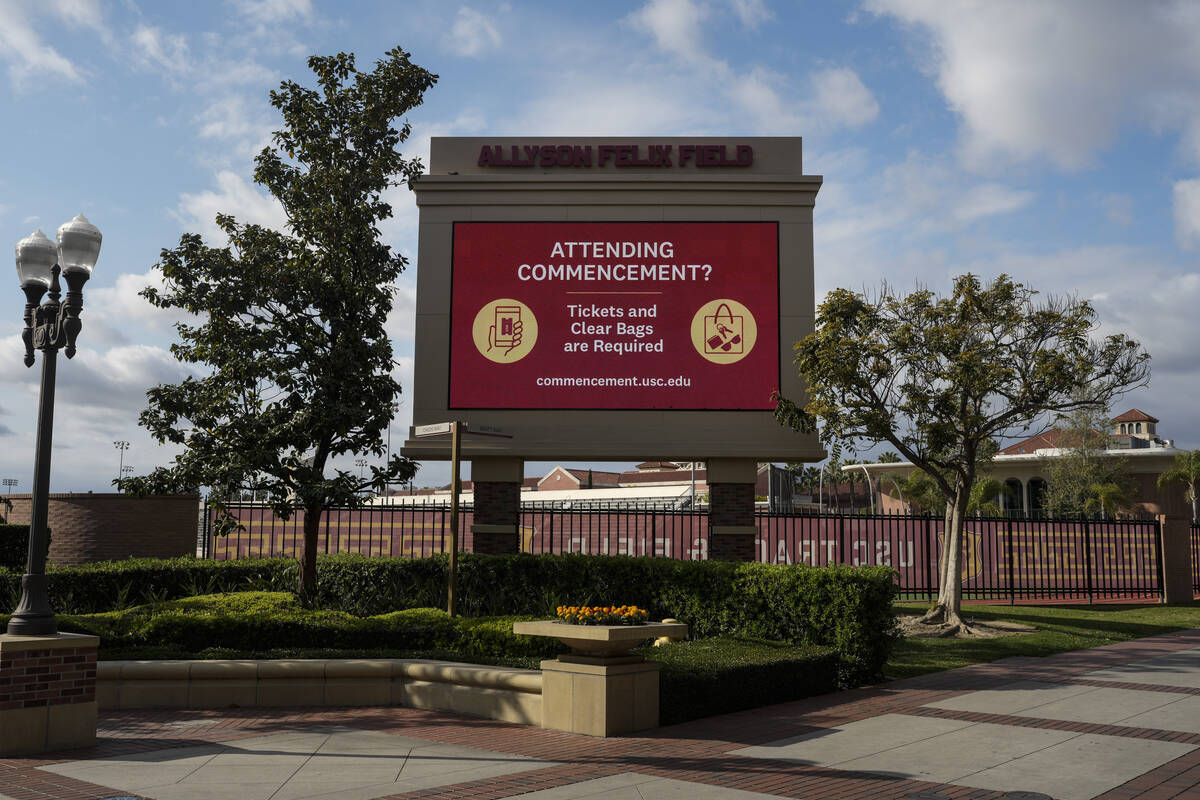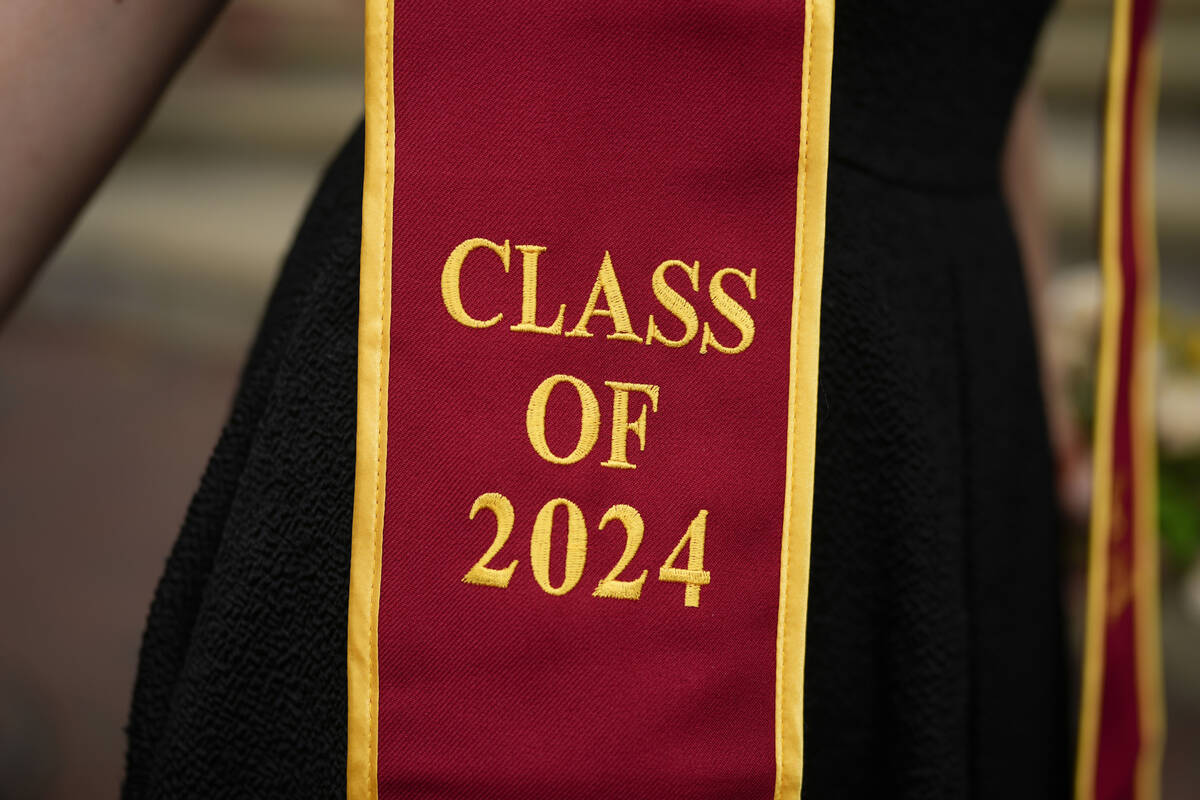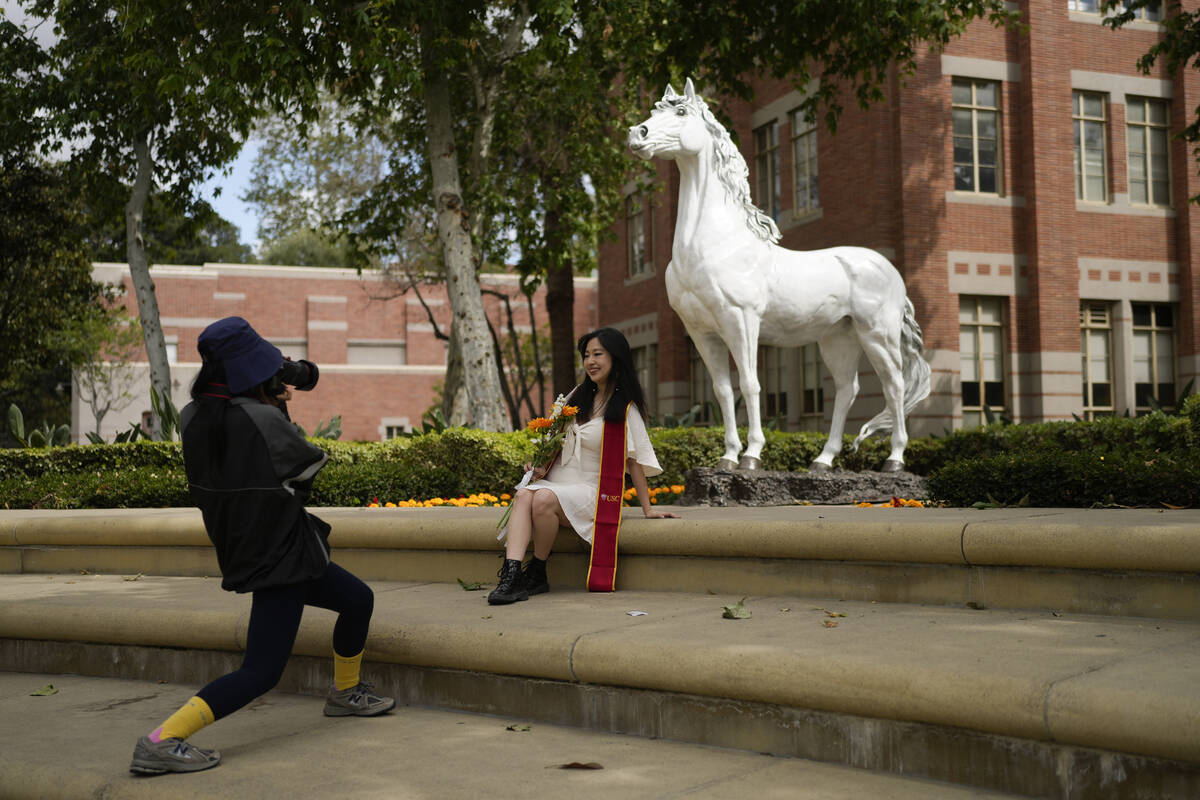USC president makes her first remarks over recent campus controversies on Israel-Hamas war
LOS ANGELES — The University of Southern California’s president called recent controversies roiling the campus over the Israel-Hamas war “incredibly difficult for all of us.”
In her first public statement in nearly two weeks, President Carol Folt condemned this week’s protests — where 90 demonstrators were arrested by police in riot gear — while imploring the campus community to find common ground and ways to support each other.
The private university initially came under fire April 15 when officials said the 2024 valedictorian, who has publicly supported Palestinians, was not allowed to make a commencement speech, citing nonspecific security concerns for the university leadership’s rare decision.
Students, faculty and alumni condemned the move, which was compounded days later when USC scrapped the keynote speech by filmmaker Jon M. Chu — a 2003 graduate of the university — and said it would not confer honorary degrees.
This week, the student protests ignited at Columbia University inspired similar protests on the Los Angeles campus, with students calling on the university to divest from companies that do business with Israel or support its ongoing military action in Gaza. Ninety demonstrators were taken into custody Wednesday night.
Less than a day later, the university announced it would cancel the May 10 main graduation event — a ceremony that typically draws 65,000 people to the Los Angeles campus.
University officials said in a statement they would not be able to process tens of thousands of guests “with the new safety measures in place this year.”
Folt’s prior silence had been heavily criticized by students, faculty and alumni as they demanded answers for the university’s decisions.
“This week, Alumni Park became unsafe,” Folt wrote in a statement issued late Friday. “No one wants to have people arrested on their campus. Ever. But, when long-standing safety policies are flagrantly violated, buildings vandalized, (Department of Public Safety) directives repeatedly ignored, threatening language shouted, people assaulted, and access to critical academic buildings blocked, we must act immediately to protect our community.”
Critics have drawn crosstown comparisons to the response of officials at University of California, Los Angeles, following protests there this week where no arrests were made.
In Northern California, protesters at Stanford University and California State Polytechnic University, Humboldt, defied Friday deadlines to leave the campuses or risk arrest. Local media reported that the demonstrators remained there Saturday morning.
At Cal Poly Humboldt, protesters occupied two buildings, and administrators called police in to remove the barricaded students Monday. At least three people were arrested. The school has closed the campus and continued instruction remotely ahead of the May 11 commencement.
The school’s senate of faculty and staff demanded the university’s president resign in a no-confidence vote Thursday, citing the decision to call police to campus.
Officials on Saturday afternoon said a “hard closure” would be enforced going forward. “Individuals are prohibited from entering or being on campus without permission,” the university said in a statement.
At Stanford, a tent encampment of demonstrators stayed despite officials threatening discipline and arrest, according to The San Francisco Chronicle. Sheriff’s deputies combed the encampment early Saturday morning, but there was no immediate word of arrests.



